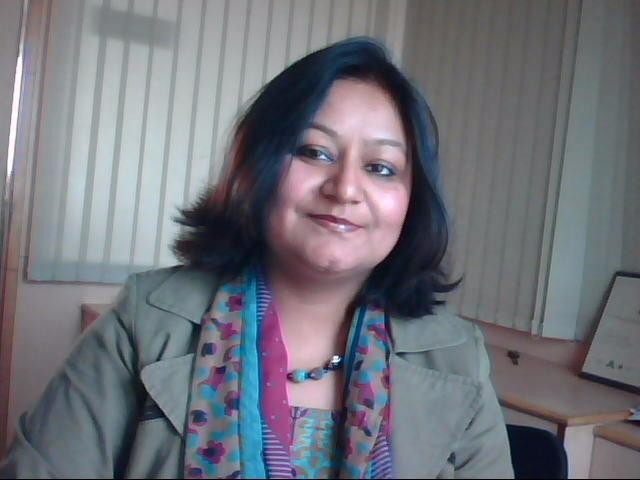Author: Sapna A. Narula, Professor & Dean, School of Management Studies, Nalanda University, India
It was hot sunny afternoon in open caste coal mines of Jharia in Jharkhand state, India when I landed up along with my research team from New Delhi and a few company officials from Bharat Coking Coal Ltd. to implement a Ministry of Coal funded research project on Eco restoration and Sustainable livelihoods. Having worked in many rural and tribal areas of India in the past two decades, I went ahead with a lot of expertise and experience of community development and capacity building projects, yet by the end of the day, I had realised that it is going to be yet another difficult battlefield given our first interaction with the local communities.
We were there on the ground to implement a component of sustainable livelihoods project where our objective was to train the local communities in new skills which could help generate livelihood opportunities for them through start of new social enterprises. On the very first day on the ground, the local communities were in full attendance amidst all the heat and dust. However, a few minutes later, the team was bombarded with lot of questions, resentment about various environmental and social issues in the area and criticism of company actions. When informed that we were there to solve their problems, initially they were very much reluctant to listen to us about the potential training programmes we had for them. They kept firing a volley of questions on How will they be benefitted? What money they are going to get? What are the kind of facilities we were going to provide? It was difficult for the team to respond to their queries as they looked to us in hope.
This particular incidence about the initiation of a research project proves how challenging action research could be at the ground and what kind of resistance one could encounter locally. This is one of the various incidences that I faced during my field work with the communities. In an otherwise ambitious project where you have all kind of financial, technological and natural resources at hand, sometimes you may feel handicapped in terms of local support while implementation. With my vast experience of skill development and capacity building work with rural communities, I find there is a lot of difference in the literary evidences and the practical groundwork. Although a lot of research exists in the area of CSR, livelihood development, skill development, capacity building, sustainable livelihoods, yet there is hardly any documentation of practical challenges faced by researchers and practitioners while implementation and also the real impact that was made at the field level. This particular project was implemented in six different phases, and there were opportunities and challenges in each phase.
To summarise, our experiences about making real impact in skill development project requires more efforts with understanding and building the local network. There is a need to build the local connect with the communities. We overcame with the resistance of the communities by integrating and revolving our research around their livelihoods, culture and building a context as to how our research would benefit them. The communities need to be at the Centre stage while you, design, plan and implement such project. The need assessment phase dealt with asking them what kind of training would actually interest them rather than forcing our previously designed training programmes, we tailor-made skill development trainings in agricultural and allied areas such as fisheries, poultry, mushroom, integrated farming to suit their needs and interests. It was found that different target groups had different interests e.g young boys and girls were interested in computer training whereas others wanted to be trained in agricultural and allied sector skills such as poultry, fisheries etc.
Trust factor plays an important role as they really felt that we cared when we provided skill development trainings in their desired areas. They were convinced about how these trainings would help them generate their own livelihood ventures for themselves and empower them economically and socially. Once convinced, there was lot of interest and seriousness regarding learning. The trainings were made practical through learning by doing, field visits, expert talks and talks by peers. The local opinion maker helped us generate that bond with the communities initially and later word of mouth spread. In fact, efforts were also made to raise local enterprises and when success stories appeared, this acted as a booster for our trainings and more people got attracted. To cut it short, the work spoke itself. The entire team including me made it a point to involve locally beyond the training programmes and connect with the locals by participating in their local festivals, solving their social problems and helping them in day to day paper work.
This project was one of the successful examples of how action research could be translated into an economic and social empowerment tool through skill development training programme thereby making more impact at the community level. In the end, the learning is that action research could make more impact if we try to understand the social complexity and cultural relevancy and create a local social and cultural connect with communities; win their trust and confidence; make them understand how these skills could benefit them in long run. The communities must be involved right from the start and design of the project till the impact assessment in order to understand their needs, level of awareness and social context where they themselves learn to create and sustain the enterprise themselves, learn to overcome the challenges and transmit their knowledge and learning to peers.
Research on the above project can be found at ScienceDirect and Wiley Online Library.

Sapna A. Narula
https://www.linkedin.com/in/sapna-a-narula-3a36017
https://www.facebook.com/sapna.narula